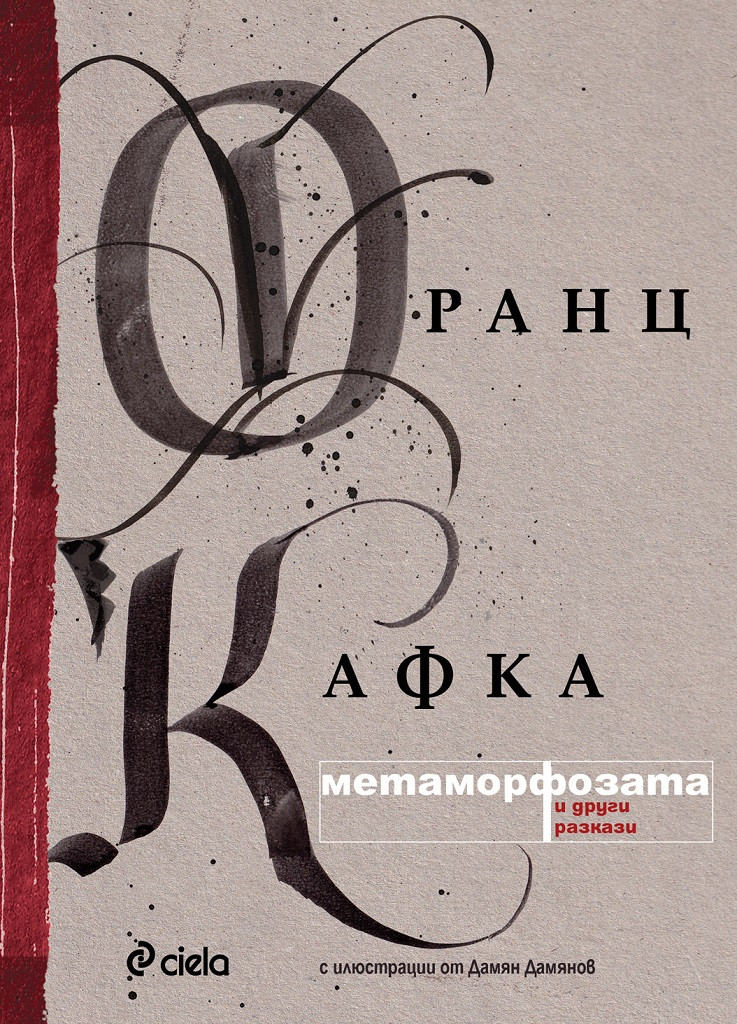
В този сборник, носещ името на една от най-знаковите повести на Франц Кафка, са събрани 11 произведения, всяко различно, но всяко представляващо особена притча, потапяща читателя в абсурдното, необяснимото, не поддаващото се на логическо осмисляне – онова, което се крие под повърхността на човешкото съзнание, но носи в себе си скрит смисъл. За Франц Кафка творчеството е „форма на молитва“, метафизичен експеримент за улавяне на неясни видения, едновременно забранен и необходим чрез силата на словото да се обхване мистерията на съществуването. Често определят чешкия писател като „поет на отчуждението“. В това отчуждение обаче Кафка се потапя, за да намери смисъл, за да открие загубената в света светлина, в чието съществуване той изобщо не се съмнява. Преводачът Венцеслав Константинов нарича писателя и „пророк на светлината“. При по-дълбоко зачитане в произведенията му може да се открие и хумор, и освобождаваща ирония, и особена невъзмутима ведрост. Съдържание на сборника: - Присъдата; - Огнярят; - Метаморфозата; - Грижата на бащата; - Единадесет сина; - Братоубийство; - В наказателната колония; - Малката жена; - Селски лекар; - Първа горест; - Издръжливец на гладуване.
Authors
Alternate language/spelling profile for Franz Kafka. This is the Russian/Ukrainian spelling. Do NOT merge author profiles in different languages/spelling. Per GR policy, books published as Франц Кафка should have that name as secondary author, with Franz Kafka as primary author.

Prague-born writer Franz Kafka wrote in German, and his stories, such as " The Metamorphosis " (1916), and posthumously published novels, including The Trial (1925), concern troubled individuals in a nightmarishly impersonal world. Jewish middle-class family of this major fiction writer of the 20th century spoke German. People consider his unique body of much incomplete writing, mainly published posthumously, among the most influential in European literature. His stories include "The Metamorphosis" (1912) and " In the Penal Colony " (1914), whereas his posthumous novels include The Trial (1925), The Castle (1926) and Amerika (1927). Despite first language, Kafka also spoke fluent Czech. Later, Kafka acquired some knowledge of the French language and culture from Flaubert, one of his favorite authors. Kafka first studied chemistry at the Charles-Ferdinand University of Prague but after two weeks switched to law. This study offered a range of career possibilities, which pleased his father, and required a longer course of study that gave Kafka time to take classes in German studies and art history. At the university, he joined a student club, named Lese- und Redehalle der Deutschen Studenten, which organized literary events, readings, and other activities. In the end of his first year of studies, he met Max Brod, a close friend of his throughout his life, together with the journalist Felix Weltsch, who also studied law. Kafka obtained the degree of doctor of law on 18 June 1906 and performed an obligatory year of unpaid service as law clerk for the civil and criminal courts. Writing of Kafka attracted little attention before his death. During his lifetime, he published only a few short stories and never finished any of his novels except the very short "The Metamorphosis." Kafka wrote to Max Brod, his friend and literary executor: "Dearest Max, my last request: Everything I leave behind me ... in the way of diaries, manuscripts, letters (my own and others'), sketches, and so on, [is] to be burned unread." Brod told Kafka that he intended not to honor these wishes, but Kafka, so knowing, nevertheless consequently gave these directions specifically to Brod, who, so reasoning, overrode these wishes. Brod in fact oversaw the publication of most of work of Kafka in his possession; these works quickly began to attract attention and high critical regard. Max Brod encountered significant difficulty in compiling notebooks of Kafka into any chronological order as Kafka started writing in the middle of notebooks, from the last towards the first, et cetera. Kafka wrote all his published works in German except several letters in Czech to Milena Jesenská.